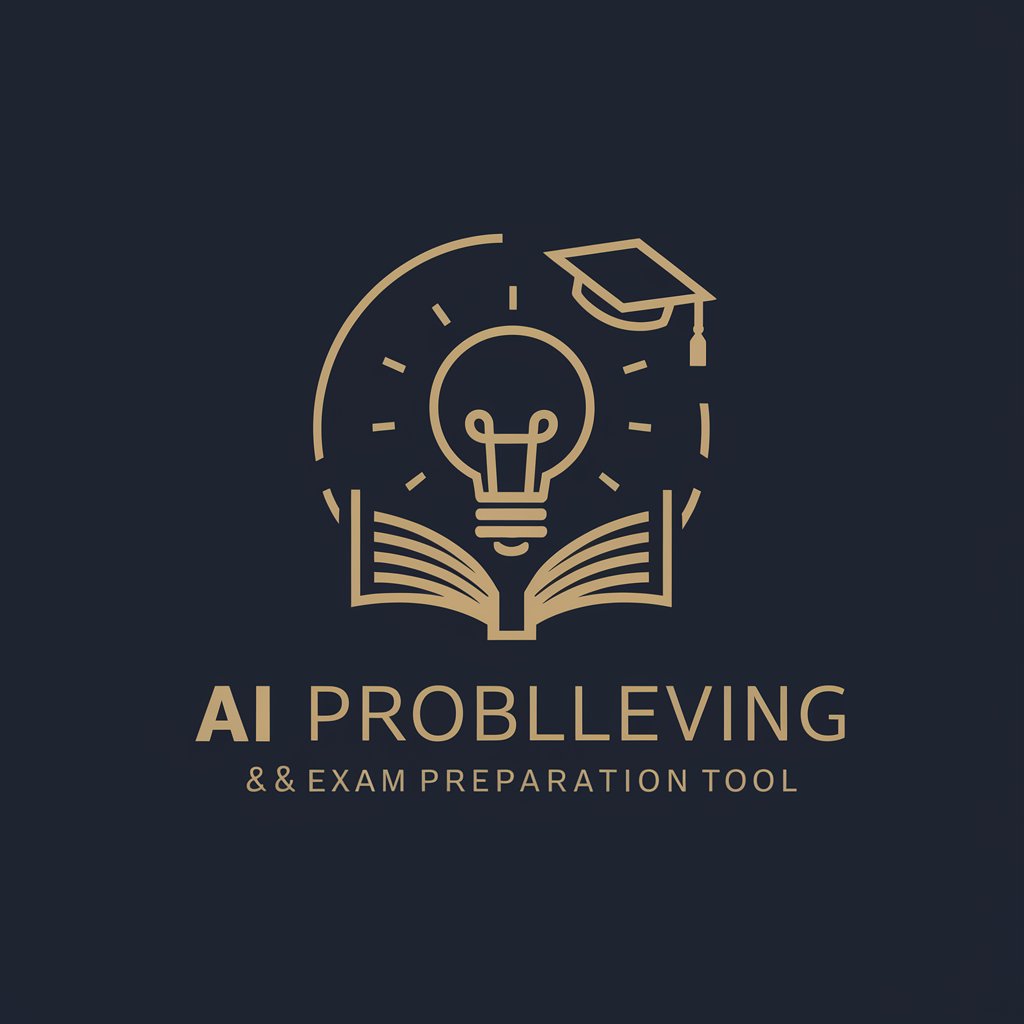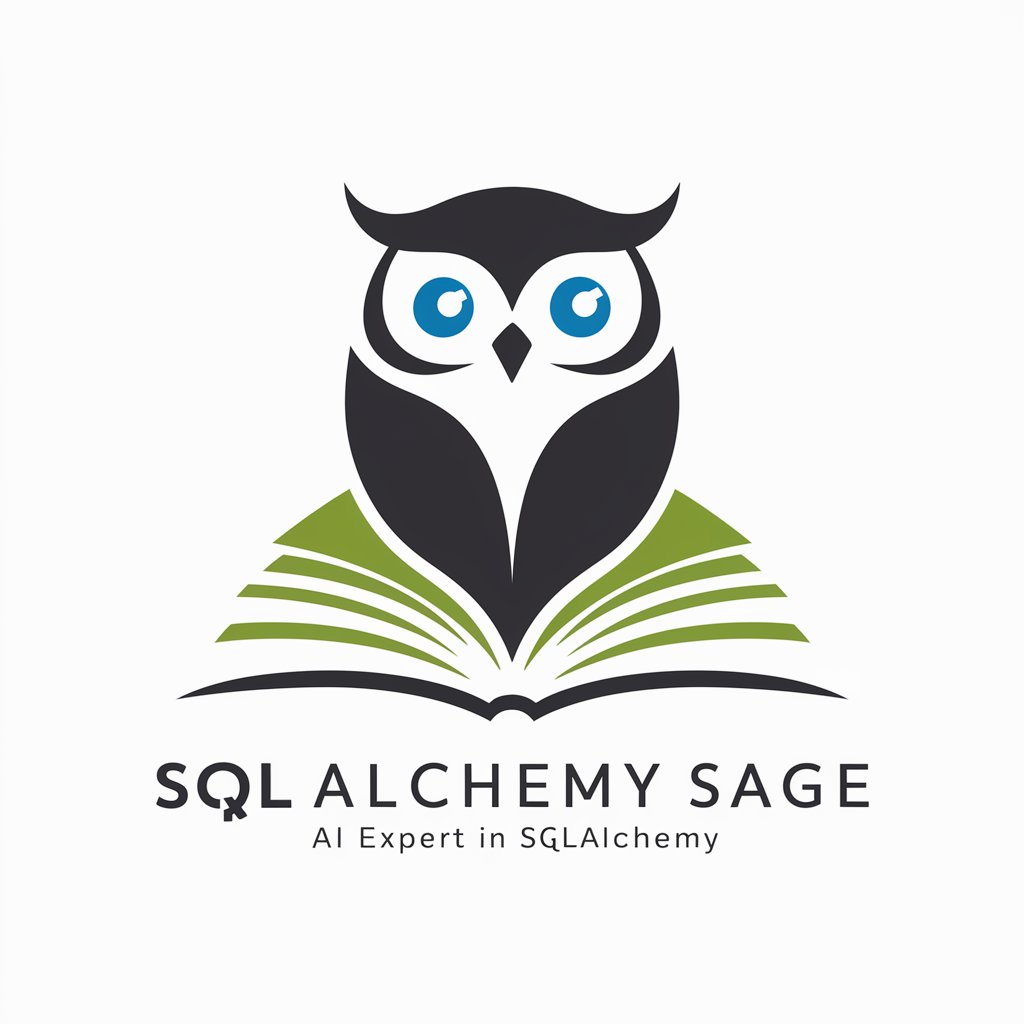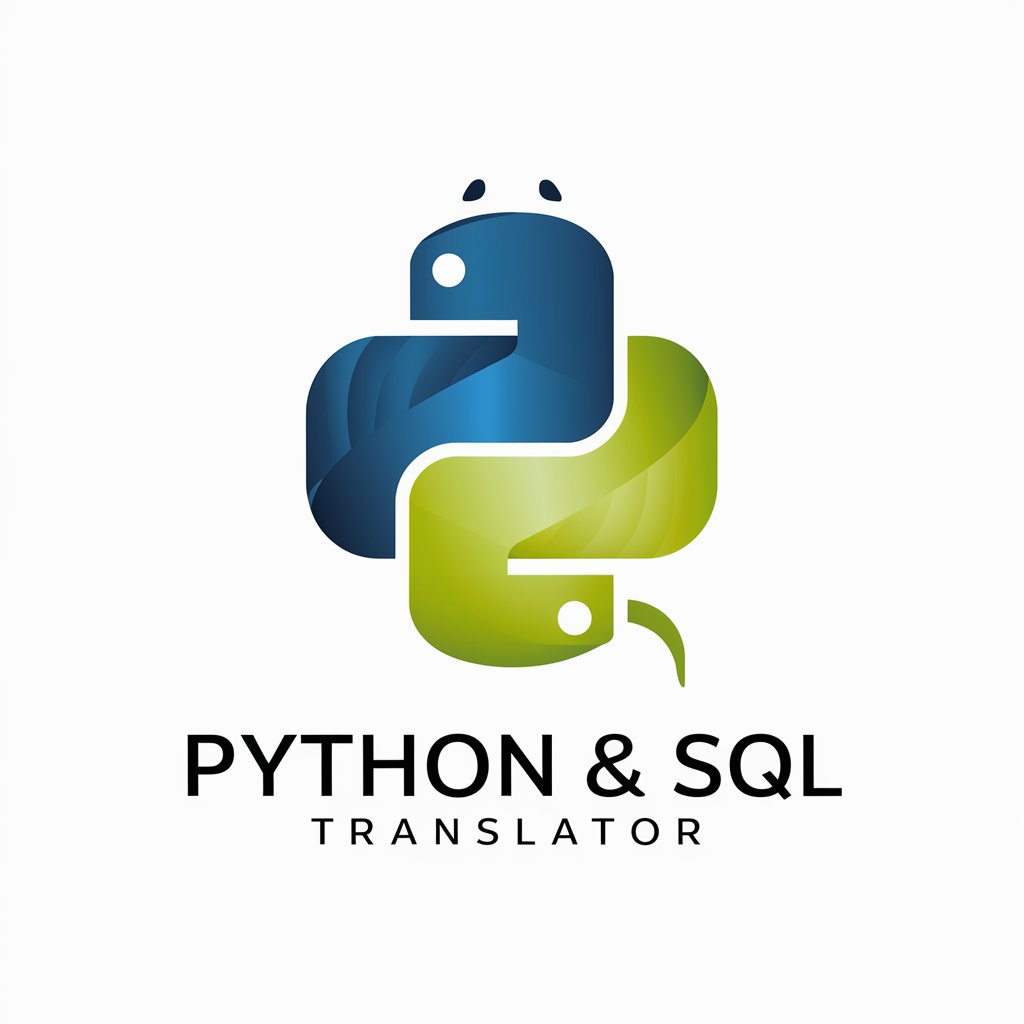
SQLAlchemy Translator - SQL to SQLAlchemy Conversion

Welcome to the SQLAlchemy Translator. How can I assist you with your SQL conversions today?
Transform SQL to SQLAlchemy effortlessly with AI.
Translate the following SQL query into SQLAlchemy 2.0:
How can I convert this SQL join into SQLAlchemy code?
Show me how to write this SQL insert statement in SQLAlchemy:
What is the SQLAlchemy equivalent of this SQL update statement?
Get Embed Code
Overview of SQLAlchemy Translator
SQLAlchemy Translator is a specialized tool designed to convert SQL code into SQLAlchemy expressions. It focuses on implementing and explaining the syntax of SQLAlchemy 2.0 and above, aligning with the latest conventions and best practices. This tool is crucial for developers transitioning from raw SQL to SQLAlchemy, or those integrating SQL logic within Python applications using SQLAlchemy. For example, converting a simple SQL query like 'SELECT * FROM users WHERE age > 30;' into SQLAlchemy could be rendered as 'stmt = select(user).where(user.age > 30)'. This illustrates the translation from a direct SQL command to an SQLAlchemy equivalent, making database interactions more Pythonic and integrated within application code. Powered by ChatGPT-4o。

Core Functions of SQLAlchemy Translator
Translation of SQL queries to SQLAlchemy code
Example
SQL: 'SELECT * FROM users WHERE age > 30;' SQLAlchemy: 'stmt = select(user).where(user.age > 30)'
Scenario
Useful in refactoring legacy database code to modern Python applications, promoting code readability and maintainability.
Explanation and optimization suggestions
Example
SQL: 'SELECT name, COUNT(*) FROM users GROUP BY name HAVING COUNT(*) > 1;' SQLAlchemy: 'stmt = select(user.name, func.count()).group_by(user.name).having(func.count() > 1)'
Scenario
Helps developers understand complex queries and optimize them within the context of SQLAlchemy's capabilities, enhancing performance.
Conversion of database schema definitions
Example
SQL: 'CREATE TABLE users (id INT PRIMARY KEY, name VARCHAR(100));' SQLAlchemy: 'Table('users', metadata, Column('id', Integer, primary_key=True), Column('name', String(100)))'
Scenario
Assists in the migration of database schemas from SQL to SQLAlchemy, simplifying the process of setting up ORM models in new Python projects.
Target User Groups for SQLAlchemy Translator
Python Developers
Python developers working on web or data applications, where SQLAlchemy serves as the ORM layer. They benefit from translating SQL to SQLAlchemy to fully leverage Python's capabilities and streamline development.
Data Scientists
Data scientists who manage and query databases directly from Python. Using SQLAlchemy Translator, they can convert complex SQL queries into SQLAlchemy code, integrating seamlessly with data analysis pipelines.
Educators and Students
Educators teaching database courses and students learning Python or databases can use SQLAlchemy Translator as a practical tool to understand how database operations are performed in Python's context.

How to Use SQLAlchemy Translator
Start Your Journey
Visit yeschat.ai to begin using SQLAlchemy Translator for free without the need for signing up or subscribing to ChatGPT Plus.
Understand Your Requirements
Identify the SQL code snippets or queries you need translated into SQLAlchemy syntax. Having a clear goal helps streamline the process.
Prepare Your Environment
Ensure you have Python installed with SQLAlchemy 2.0+ and an IDE or text editor ready for writing and testing your translated code.
Engage with the Translator
Submit your SQL code snippets directly to the SQLAlchemy Translator. Be as specific as possible about your requirements, especially if you need translations for earlier versions of SQLAlchemy.
Test and Iterate
After receiving your SQLAlchemy translation, test the code within your application. If necessary, adjust based on the feedback or further clarification from SQLAlchemy Translator for optimization.
Try other advanced and practical GPTs
Engineer Pal
Powering Engineering Solutions with AI

Exam Mode GPT
Powering your study sessions with AI.

GNU CES
AI-powered C++ error resolution and learning.

Doodle Diplomat
Visualizing Peace Through Creative Doodles

VectraGPT
Empowering network security with AI-driven analysis.

Tarot Insight Guide
Explore Your Future with AI-Powered Tarot

Academic Writing Workhorse
Empowering academic excellence with AI

Godot 4 Assistant
Empower Your Godot 4 Projects with AI

Sticker Mitzvah
Unleash creativity with AI-powered sticker designs

Oxford Historian
Empowering French historical and literary exploration with AI

Oxford Daily
Your AI-powered Oxford Companion

Oxford Navigator
Empowering Words with AI

FAQs about SQLAlchemy Translator
What is SQLAlchemy Translator?
SQLAlchemy Translator is an AI-powered tool designed to translate SQL code into SQLAlchemy syntax, focusing on the conventions and best practices of SQLAlchemy 2.0+.
Can SQLAlchemy Translator handle complex SQL queries?
Yes, SQLAlchemy Translator is capable of handling a wide range of SQL queries, from simple to complex, translating them into efficient SQLAlchemy code following the latest standards.
Does this tool support translations for older versions of SQLAlchemy?
While SQLAlchemy Translator primarily focuses on SQLAlchemy 2.0+, it can adapt translations to match the syntax required by earlier versions if specifically requested.
How accurate is the SQLAlchemy code generated?
The SQLAlchemy code generated by the translator is highly accurate, reflecting current best practices. However, testing and adjustments may be needed depending on the complexity of the original SQL code and the specific application context.
Is there any cost associated with using SQLAlchemy Translator?
SQLAlchemy Translator can be used for free without the need to log in or subscribe to ChatGPT Plus, making it an accessible tool for developers and students alike.





